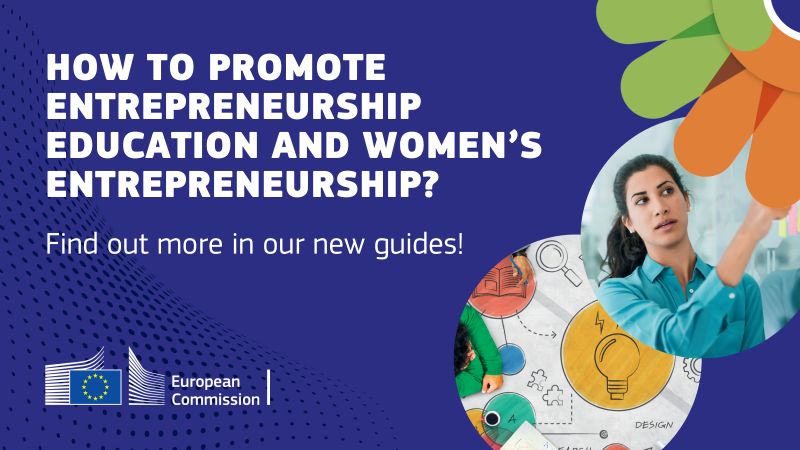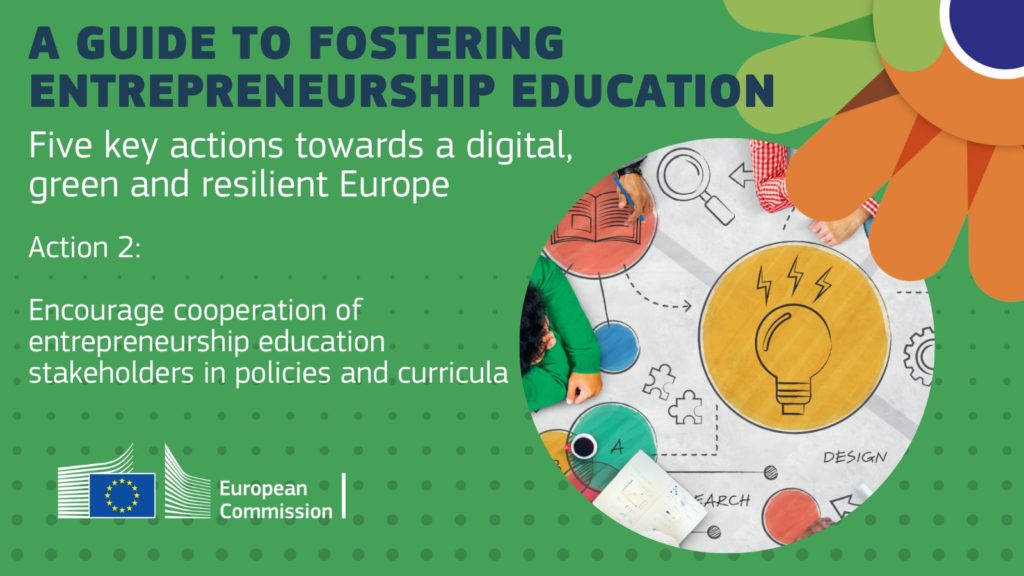Peer-learning in entrepreneurship education and in women’s entrepreneurship
In order to achieve a smooth transition to the digital and green economies and a strong recovery from the pandemic, Europe needs more people who are properly equipped to tackle new challenges. For example, women are often underrepresented or excluded from business innovation or entrepreneurship. In addition, learning platforms such as entrepreneurship education can help people of all ages develop innovative business ideas. Both entrepreneurship education and women’s entrepreneurship are often undervalued. They need to be promoted in order to tap into the full creative potential of Europe and develop creative solutions to future economic and social problems.

To address these issues, the COSME Programme funded the Peer-Learning Activities in Entrepreneurship Education and in Women’s Entrepreneurship project, which ran from 2018-2021.
The project’s objective was to help increase coordination between interested parties and create or improve strategies to promote entrepreneurship in education and amongst women. It brought together around 300 experts from across Europe in a series of workshops, and issued a series of recommendations aimed at fostering greater entrepreneurship education and increasing women’s participation in entrepreneurship in Europe.
Entrepreneurship Education
Europe needs more people to tackle pressing societal challenges: above all the twin transition to a digital and green society as well as pandemic recovery. Entrepreneurship education (EE) can unleash the potential of Europeans to master climate change and digitisation and build a more resilient society.

The guide below is the final output of the project. The target group was decision makers in governments, education, civil society and business at local, regional, national and European level.
The project identified five main areas where decision makers could be active: training educators, ensuring stakeholder cooperation, sharing knowledge, raising awareness of EE benefits as well as conducting research and analysis about EE. These areas are interlinked and mutually reinforce each other.
Recommendations
Entrepreneurship is when you act upon opportunities and ideas and transform them into value for others. This can be financial, cultural, or social. But how to learn or teach entrepreneurship? These five recommendations and the guide provide practical tools on how and where to implement entrepreneurial teaching.
They are not only addressed to educators or policy makers, but to everyone who sees importance in creative, practice-based cooperative learning and development of competencies. Are you a dean of a school? a regional policy maker? a teacher? a parent? a student or a pupil? These recommendations are for you!
- develop EE competence of leaders and teachers in education institutions
- encourage cooperation of EE stakeholders about policies and curricula
- communicate what EE is and what benefits it brings
- measure and compare EE practice and impact in pan-European research
- share EE knowledge and experience to enhance teaching and learning
You can read more about how these 5 key actions can help increase entrepreneurship education in Europe in the guide below:
A guide for fostering entrepreneurship education
Women’s Entrepreneurship
Europe needs to acknowledge the social and economic importance of women entrepreneurs. With the challenges of the digital and green transition, as well as the COVID-19 pandemic’s implications for the labour market, women’s entrepreneurship (WE) could be reinforced as a viable career path for women of all ages.
The guide below is a final output of the project Peer-Learning Activities in Entrepreneurship Education and in Women’s Entrepreneurship (2018-2021). It was written for decision makers in governments, educational institutions, civil society organisations, businesses and business associations at local, regional, national and European level.
The project led to five thematic recommendations that decision makers can target. These recommendations are interlinked and reinforce each other mutually. For example, promoting entrepreneurship as a career path requires role models, sufficient funding, and networks. A new women´s entrepreneurship funding platform requires a sound base in the education system to bring out competent, motivated and ambitious women entrepreneurs.
Recommendations
Sustainable, balanced and inclusive growth can be achieved thanks to women’s economic empowerment and entrepreneurship. This project’s emphasis was on identifying specific actions that can help existing and would-be women entrepreneurs to create and run competitive businesses. Often this means ensuring that initiatives supporting entrepreneurship include a component specifically dedicated to women.
The five recommendations, which are peer reviewed, are addressed to all, and your active participation can make them come alive!
- raise awareness about WE and acknowledge the importance of women entrepreneurs
- ensure life-long entrepreneurial learning, especially for women
- improve access to finance for women entrepreneurs
- build a pan-European umbrella organisation and community for WE
- collect and analyse data about women’s entrepreneurship
You can read more about how these 5 key actions can help help increase women’s entrepreneurship in Europe in the guide below:
A guide for fostering women’s entrepreneurship
An SME Strategy for a sustainable and digital Europe
EntreComp: the entrepreneurship competence framework
DigComp: digital competence framework for citizens
GreenComp: the European sustainability competence framework
FinComp: financial competence framework for adults
Original post: https://eismea.ec.europa.eu/peer-learning-entrepreneurship-education-and-womens-entrepreneurship_en
